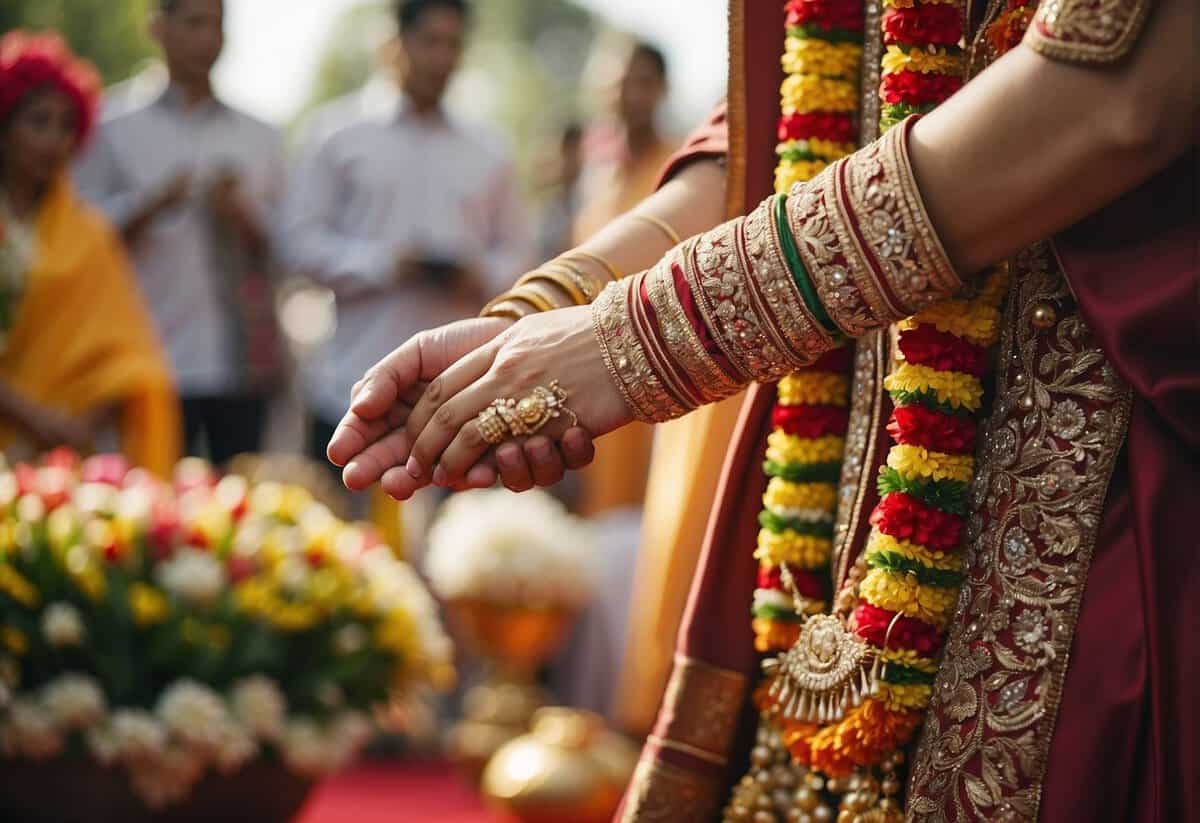How is a Wedding Different from Being in a Marriage? Understanding the Transition
Understanding the difference between a wedding and a marriage can be crucial for those planning to tie the knot or those who want to comprehend the significance of these concepts in a broader cultural context. While the terms are often used interchangeably in casual conversation, they represent fundamentally different aspects of a couple’s journey together. A wedding is essentially the gateway to marriage—a festive event that marks the beginning of a shared life, typically celebrated with a ceremonious gathering of friends and family.

In contrast, marriage is the continuous and evolving relationship that follows the wedding. It is the daily commitment and partnership two individuals share as they navigate life’s challenges and joys together. Marriage involves mutual support, understanding, and growth, going far beyond the single day of celebration a wedding represents. It is an intricate mix of personal dynamics, societal expectations, and cultural rituals that enhance the union’s depth and complexity.
Key Takeaways
- A wedding is a celebratory event marking the start of marital life.
- Marriage is a long-term commitment involving mutual support and growth.
- The depth of marriage transcends the day of the wedding ceremony.
The Essence of a Wedding

When you think of a wedding, it’s often the joyous celebration and the deep-seated rituals that come to mind. It’s a time where love is the guest of honor, and every detail from the wedding cake to the vows holds significant meaning.
Celebration and Rituals
Your wedding is a reflection of the joy and love you and your partner share. Imagine the laughter and happy tears as friends and family gather to witness your union. From the wedding customs like the exchange of rings to the festive wedding traditions such as the first dance, each element underscores the celebration of your commitment. Even the wedding dress you select is more than just attire—it’s a cherished symbol of this special day.
- Customs: Varies by culture, adding unique flavor to the celebration.
- Rituals: Moments like the dress rehearsal and cutting of the wedding cake.
Legal and Social Significance
Beyond the joyous celebration, your wedding is also when you and your partner navigate the formal steps to become legally recognized as a married couple. It’s the moment you secure a marriage license at city hall and when your chosen officiant solemnizes your union in the eyes of the law and society. These legalities and social recognitions solidify your journey from being engaged to officially married.
- Legal Acts: Obtaining a marriage license, signing official documents.
- Social Acts: The public declaration of your union, legitimizing your partnership.
Marriage Fundamentals

When you enter into a marriage, you’re not only committing to a lifelong partnership, but you’re also stepping into a legally binding contract that involves both rights and responsibilities.
Commitment and Partnership
Marriage is the promise you and your partner mutually make to support and be with each other through thick and thin. It’s a deep commitment to build a shared future together, where you’ll create lifelong memories and celebrate milestones. Whether it’s navigating daily chores or planning for a family, marriages are about working together and acknowledging both of your needs and aspirations. The strength of your relationship often depends on how well you understand and fulfill your mutual partnership roles, which can complement traditional gender roles or define new ones based on mutual agreement.
Legal and Financial Aspects
The moment you say “I do”, your legal union comes into effect, encompassing aspects such as inheritance rights, presumptions of paternity, and in some circumstances, impacts on social status and education. If you or your spouse owns property, joint ownership usually becomes the norm. In the unfortunate event of a divorce, laws will dictate the division of assets and debts. Your marriage also affects your insurance policies, potentially offering better rates and benefits. Importantly, with the recognition of same-sex marriage, these legal and financial benefits extend to all married couples, offering security and legal protections regardless of gender.
Cultural and Societal Contexts

In exploring the diverse landscape of weddings and marriages, you’ll discover that cultural and societal norms shape these institutions profoundly. Each culture brings its unique practices and traditions, often reflecting the local faith, social status, and historical influences.
Diverse Marriage Practices
When you think of marriage, you might picture the common monogamous arrangement. However, various forms of marriage, such as polygamy, are still practiced in parts of the world like Nigeria. In countries like India, for example, arranged marriages are a deeply rooted tradition, with families playing a pivotal role in selecting a spouse. This practice is not based solely on parental authority but is often a way of maintaining cultural and societal continuities.
Same-sex couples, on the other hand, face different cultural and societal contexts depending on where they are in the world. While some societies have embraced and legalized same-sex marriages, others still impose prohibitions, reflecting the prevailing social and religious attitudes.
Wedding Customs Around the World
- China: A notable tradition is the Tea Ceremony, where the couple serves tea to their elders as a sign of respect and gratitude.
- India: Weddings can last several days, with events like the Mehndi where intricate henna patterns are applied to the bride’s hands and feet.
- Greece: A staple at Greek weddings is the “Stefana”—linked crowns that the bride and groom wear to symbolize unity and eternity.
From symbolic rituals to festive celebrations, these customs are not just mere formalities; they are the lens through which cultures express their identity and values regarding marriage. As you delve into these contexts, you gain a better understanding of how weddings and marriages are much more than legal unions—they’re deeply ingrained in the fabric of cultural identity.
Personal Dynamics and Growth

Entering into marriage transforms your life in profound ways, particularly affecting your personal dynamics and growth. You’ll navigate the highs and lows with your partner, discovering new depths of trust, intimacy, and sometimes, unexpected challenges.
Challenges and Triumphs of Marriage
Marriage brings a spectrum of challenges and achievements. Your journey together will test the trust and support that binds you, shaping a more resilient bond. Encounters with stress may arise, especially regarding decisions about raising children or tackling financial pressures.
- Pros: Shared success, lifelong love, and a network of support
- Cons: Potential for conflict, divorce, and feelings of separation
As you face these trials, remember that every challenge conquered makes your relationship richer and deeper.
Evolving Personal Relationships
Personal growth in marriage isn’t static; your feelings evolve, whether it’s maturing beyond lust into lasting intimacy, or finding new ways to express love and mutual support. You’ll experience a dynamic shift in your relationship, as you continually learn and grow together.
- Trust: Becomes stronger as you overcome life’s obstacles as a team.
- Intimacy: Deepens beyond physical into emotional and intellectual realms.
Remember, while change is inevitable, it brings with it the opportunity to love each other in more profound ways, forever transforming your union.
Frequently Asked Questions

In this section, you’ll find clear answers to common queries distinguishing wedding events from the state of marriage, legal implications, cultural variations, and the importance of ceremonies and contracts in the union of two people.
What distinguishes the celebration of a wedding from the ongoing state of marriage?
A wedding is a ceremony where two people are united in marriage. It is a one-day event full of rituals and celebrations. Marriage is the ongoing relationship that unfolds after the wedding, focusing on the long-term commitment and partnership between the two individuals.
Are weddings and civil partnerships legally or symbolically different?
Yes, weddings and civil partnerships differ legally and symbolically. A wedding traditionally involves a ceremony recognized by religion or culture, whereas a civil partnership is a legal relationship without the ceremonial requirements.
What are the cultural variations between a marriage ceremony and a wedding ceremony?
Cultural variations affect ceremonies globally, where each culture has unique traditions that influence the structure of marriage and wedding ceremonies. These differences can include attire, vows, and rituals, all of which hold particular significance within a culture’s view of marriage.
Why is a marriage contract a key element in the union of two people?
A marriage contract solidifies the legal status of a couple’s commitment. It outlines rights and responsibilities, providing legal protection for both individuals in a variety of circumstances including property, inheritance, and decision-making.
How essential is it to have a wedding, and can a marriage exist without one?
Having a wedding is not essential for a valid marriage; it’s a personal choice. A marriage can exist without a wedding if the couple decides to legally bind themselves without a ceremonial event.
What role does a wedding serve in the context of a lifelong commitment?
A wedding serves to publicly declare a couple’s intent to commit to each other for life. It marks the beginning of married life together, laying the foundation for the marriage, and is often seen as a significant milestone in a couple’s relationship.


